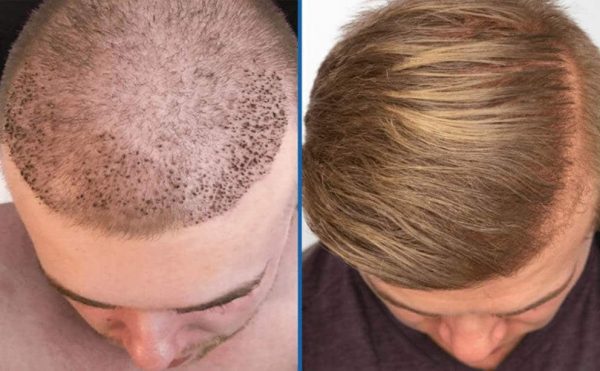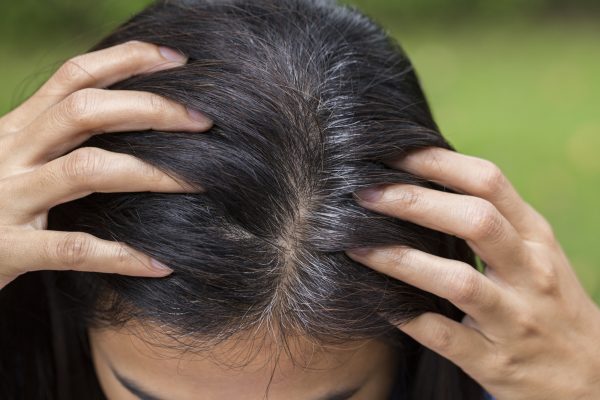It’s no secret that hair is important to us—it’s at the core of who we are and how we express ourselves. The appearance of our hair is also an indicator of our health.
Anti-Hair Fall Shampoo is a hair fall treatment that makes hair fall less. It helps to increase hair growth, prevent hair fall and gives protection against hair damage.
There are several anti-hair fall shampoos on the marketplace, all jostling for a space in your shopping basket! Most of them make lofty claims as well. So, how do you pick the best one for your hair fall?
After consulting with our in-house experts and investigating numerous products, we’ve compiled a list of considerations before purchasing an anti-hairfall shampoo.
How Do Shampoos Prevent Hair Loss?
Let us start with the unpleasant reality. Most shampoos on the market have not been subjected to clinical studies. These cannot be regarded as the first line of defense against hair loss.
However, the chemicals in these shampoos stimulate blood flow, which helps to prevent hair loss to some extent. However, the components are in low amounts and are diluted. The efficacy of such shampoos is determined on the frequency and timing of application.
What Is the Best Hair Fall Shampoo?
1. Considerations Before Choosing a Shampoo
Instead of being drawn to the prominent labels that proclaim ‘anti-hairfall shampoo,’ conduct some study before selecting one. Not every shampoo will help you with your hair loss. Hair type, hair issues, shampoo components, and pH level of shampoo are all factors to consider when selecting a shampoo to combat hair loss.
2. Recognize Your Hair Type
To begin, understand your hair and scalp type. You cannot use a shampoo designed for dry scalp on an oily scalp. The classification of hair kinds based on several factors is as follows:
- Density of hair: Hair can be thick, medium, or thin.
- The amount of oil (sebum) secreted on the scalp is as follows: Hair types include normal, oily, dry, and mixed.
- Hair thickness: thick, medium, and thin hair
- Porosity, or the capacity of hair to retain moisture: Porosity is classified as high, medium/normal, or low.
- Elasticity (the capacity of a strand to stretch before reverting to its original state): high, medium, and low.
- Straight, wavy, and curly hair have different curl patterns.
3. Determine Your Hair Issue
You may be experiencing hair loss due to dandruff, hair coloring, weak hair roots, or scalp concerns. Before you go to the beauty store, it is critical to understand the source of your hair loss. It is common to lose roughly 100 strands. Anything beyond this is cause for alarm, and you must address your hair issue.
The following are some of the components to search for to address certain issues:
- Activated charcoal and salicylic acid extracted from wintergreen: Removes follicle-clogging pollutants and promotes healthy hair development.Strengthens hair with zinc, biotin, collagen, gluco-omega mix, rice protein, and keratin.
- Ketoconazole: An antifungal that aids in the removal of dandruff.
- Mint, ginger: Increases blood circulation to the scalp
- Shea butter: moisturizes the hair.
- Antioxidants and essential oils such as grapeseed oil: Reduces scalp inflammation and irritation.
- Keratin: This protein coats the hair strands, traps moisture in the scalp, and provides volume to the hair.
- Promotes hair development with pumpkin seed oil, rosemary oil, and green tea extract.
4. Don’t Miss These Suggestions
- Avoid shampoos that lather excessively. These shampoos are sulfate-free and gentle on your scalp.
- As much as possible, opt for natural substances.
- If you have curly, frizzy, or coarse hair, search for shampoos that also prevent hair fall.
- If you have severely thin hair, use a clear shampoo (which is typically gentle).
- Look for hydrating elements as well as anti-hair-fall compounds if you have dry hair.
5. Shampoo with a pH
Sweat on your scalp combines with oil or sebum to generate the acid mantle, a thin layer. The pH of this mantle ranges between 4.5 and 5.5. The acidic nature of hair inhibits the growth of fungus and bacteria on the scalp and hair.
This pH also maintains the hair’s cuticle maintained and healthy. As a general guideline, search for shampoos with a pH near to your scalp’s to avoid causing hair/scalp damage.
FAQ
What Should You Avoid?
Look for shampoos with natural active ingredients to address your hair loss. Sulfates (myreth sulfate, sodium lauryl sulfate, and ammonium lauryl sulfate), alcohols and their derivatives, propylene glycol, parabens, and phthalates should be avoided. Here are some dangerous substances to avoid when caring for your hair.
Why does my shampoo cause my hair to fall out?
It is common to lose a few hair strands during washing. This is the hair in the resting or telogen phase. However, if you detect hair masses obstructing your shower, get medical attention. There might be a medical ailment at the root of the problem.
The Bottom Line
With all of the information presented above, we hope you can navigate the ocean of anti-hair fall shampoos. Hair loss can be caused by a variety of factors, including hormonal changes, poor nutrition, pollution, stress, and underlying health conditions. We recommend that you consult a dermatologist if you have any abrupt, new, or severe hair loss.


